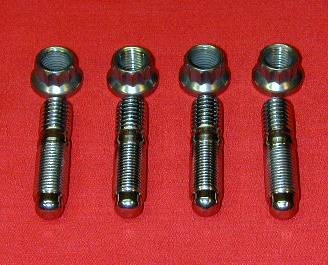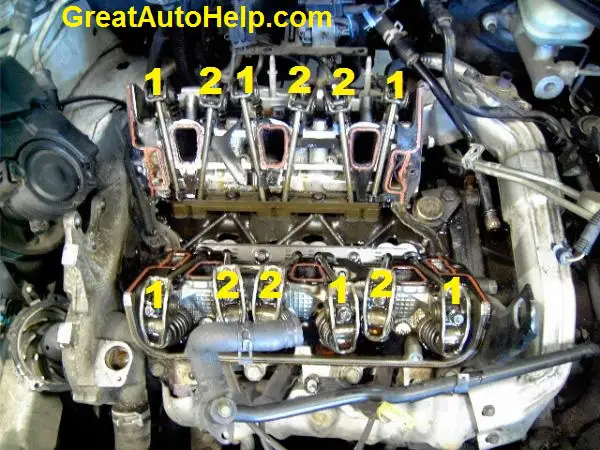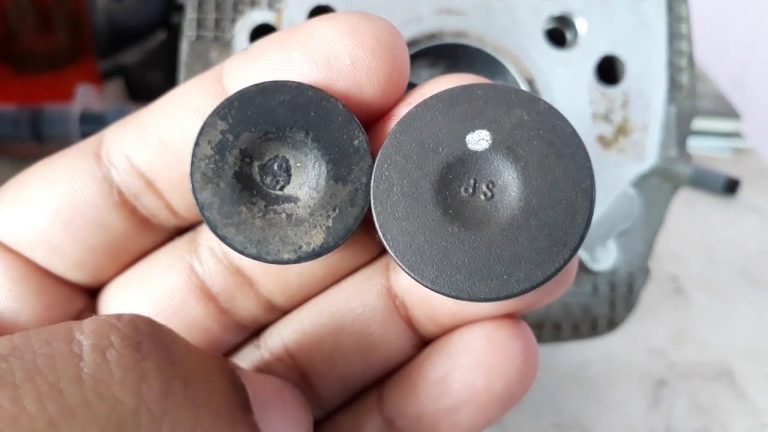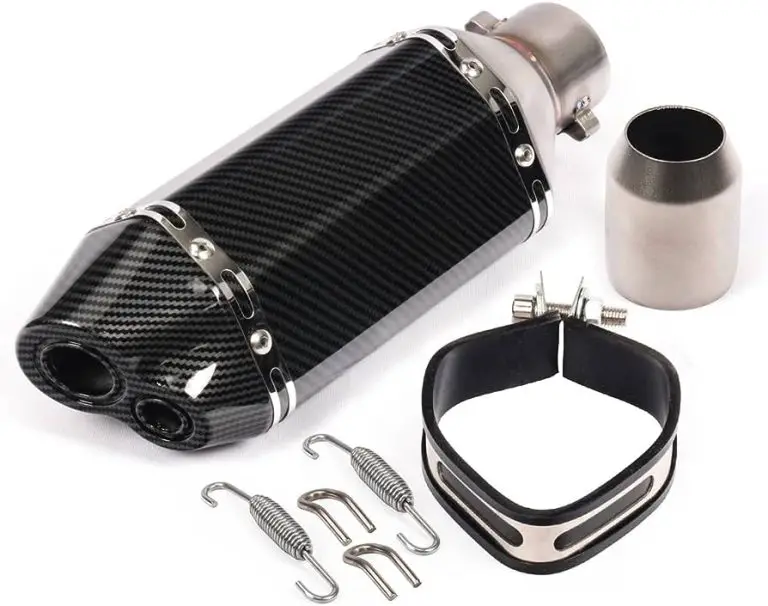Transform Your Ride: Unveiling the Influence of Exhaust System Design
The impact of exhaust system design on performance is explored through the sound it produces.

Credit: www.nytimes.com
The Importance Of Exhaust System Design
Exhaust system design plays a crucial role in improving a vehicle’s performance. It impacts various aspects, such as enhancing fuel efficiency, optimizing power output, and enhancing the sound and aesthetics of a vehicle. Through careful engineering and innovation, manufacturers can create exhaust systems that not only efficiently remove exhaust gases but also improve overall performance.
By optimizing the design and layout of the exhaust system, engineers can maximize power output, leading to improved acceleration and overall vehicle performance. Furthermore, a well-designed exhaust system can help enhance fuel efficiency by reducing backpressure and improving the overall airflow.
Additionally, the sound and aesthetics of a vehicle can be greatly influenced by the exhaust system design, giving it a distinct and pleasing appearance. Overall, the impact of exhaust system design is multifaceted, benefiting both the performance and overall experience of a vehicle.
Understanding The Components Of An Exhaust System
An exhaust system is composed of several key components that play a crucial role in the overall performance of a vehicle. The exhaust manifold efficiently collects and channels the exhaust gases away from the engine. A catalytic converter then works to reduce harmful emissions by converting them into less harmful substances.
Next, the muffler helps to reduce noise levels by dampening the sound produced by the exhaust gases. Finally, the tailpipe releases the exhaust gases into the environment. Each component of the exhaust system contributes to the overall performance and efficiency of the vehicle, ensuring proper functioning and minimizing environmental impact.
Understanding the various components of an exhaust system helps to appreciate their impact on the sound and overall performance of a vehicle.
The Impact Of Exhaust System Design On Performance
Exhaust system design plays a crucial role in the overall performance of a vehicle. By enhancing airflow efficiency, it allows for optimal engine operation. One key factor is reducing backpressure, which occurs when exhaust gases encounter resistance. By minimizing backpressure, the engine can expel exhaust gases more efficiently.
This leads to increased horsepower and torque, as the engine can breathe easier. A well-designed exhaust system also allows for better scavenging, which helps to remove exhaust gases from the combustion chamber effectively. As a result, the engine can generate more power.
Overall, selecting the right exhaust system design can significantly improve the performance of a vehicle, providing enhanced speed, acceleration, and overall driving experience. So, when considering modifications to your vehicle’s exhaust system, it is crucial to keep in mind the impact it can have on performance.
Factors To Consider In Exhaust System Design
Factors to consider in exhaust system design include pipe diameter and length, material selection, resonance and backpressure tuning, as well as choosing between single or dual exhaust systems. The pipe diameter and length play a crucial role in determining the efficiency and sound of the exhaust system.
Material selection is another crucial factor, as it impacts the durability and performance of the system. Resonance and backpressure tuning help optimize the flow of exhaust gases, enhancing performance and reducing fuel consumption. The choice between single and dual exhaust systems depends on the specific vehicle and performance requirements.
Each factor must be carefully considered to design an exhaust system that maximizes performance, efficiency, and the desired sound. Ultimately, an exhaust system design that addresses these factors can significantly impact the overall performance and driving experience.
The Role Of Catalytic Converters In Exhaust Systems
Exhaust system design plays a crucial role in the overall performance of a vehicle. One key component of the exhaust system is the catalytic converter, which helps reduce harmful emissions. Ceramic and metallic catalytic converters are the two main types available in the market.
Ceramic converters are known for their high efficiency in reducing emissions, while metallic converters offer better durability. When it comes to performance and environmental responsibility, striking the right balance is essential. Manufacturers are continually working on innovative exhaust system designs that optimize both power and emission control.
By considering factors such as airflow, backpressure, and the type of catalytic converter used, engineers can create exhaust systems that deliver maximum performance while minimizing environmental impact. The sound produced by the exhaust system is also influenced by its design, making it an important consideration for car enthusiasts.
Addressing Noise And Aesthetics With Mufflers
Exhaust system design plays a crucial role in both the performance and aesthetics of a vehicle. Mufflers, in particular, are significant in addressing concerns related to noise and appearance. Different muffler designs have varying effects on the sound produced by the exhaust system.
It is essential to find the right balance between performance and noise level to ensure a satisfying driving experience. Additionally, exhaust tips can enhance the overall appearance of the vehicle, adding a touch of style and sophistication. By selecting the right combination of muffler design and exhaust tips, car enthusiasts can achieve an appealing and high-performing exhaust system that complements the vehicle’s overall look.
So, whether it’s a sporty roar or a more subdued hum, the sound of your vehicle’s performance can make a statement on the road.
Selecting The Right Exhaust System For Your Vehicle
Selecting the right exhaust system for your vehicle involves several key factors. First, consider the make and model of your car to ensure compatibility with the chosen system. Additionally, it is crucial to be aware of the legal requirements and emissions standards in your area.
This will help you stay compliant and avoid any potential issues. When it comes to deciding between a stock system and an aftermarket one, weigh the pros and cons carefully. While a stock system may provide a seamless fit, an aftermarket system can offer enhanced performance and customization options.
By considering these aspects, you can make an informed decision and enjoy the benefits of the right exhaust system for your vehicle.
Installation And Maintenance Tips For Exhaust Systems
Exhaust system design has a significant impact on the performance of a vehicle. Whether you choose professional installation or opt for a diy approach, thorough maintenance is essential. Regular inspections and upkeep practices should be followed to ensure the system is in top condition.
By identifying and addressing common issues, such as leaks or excessive noise, you can troubleshoot any problems that may arise. Keeping the exhaust system well-maintained is crucial for optimal vehicle operation and can contribute to the overall performance of the vehicle.
So, don’t overlook the importance of exhaust system design and invest in proper installation and maintenance for a smooth-running and efficient vehicle. Trust the professionals or take on the task yourself, but never compromise on the regular inspection and maintenance of your exhaust system.
Frequently Asked Questions On The Sound Of Performance: Exploring The Impact Of Exhaust System Design
What Is The Impact Of Exhaust System Design On Vehicle Performance?
The design of an exhaust system plays a crucial role in a vehicle’s performance. It affects horsepower, torque, and fuel efficiency by optimizing exhaust gas flow and back pressure. A well-designed exhaust system can enhance engine performance and deliver a more responsive driving experience.
How Does Exhaust System Design Affect Sound Quality?
Exhaust system design greatly influences the sound produced by a vehicle. Factors such as pipe diameter, muffler design, and resonator placement can create the desired exhaust note. An optimized exhaust design can enhance the engine’s sound, giving it a deeper, more aggressive tone.
Can An Upgraded Exhaust System Improve Fuel Efficiency?
Yes, a well-designed performance exhaust system can improve fuel efficiency by reducing back pressure and improving exhaust gas flow. This allows the engine to breathe more freely, resulting in better combustion and increased fuel efficiency. However, the improvement in fuel economy may vary depending on other factors such as driving habits and engine tuning.
Conclusion
Innovative exhaust system designs can have a profound impact on the overall performance of a vehicle. From enhancing engine efficiency to improving horsepower and torque, the sound of performance plays a crucial role. By optimizing the design of exhaust systems, automakers can achieve maximum performance while minimizing emissions.
This not only benefits the environment but also enhances the driving experience for enthusiasts. The choice of materials, the configuration of pipes, and the incorporation of resonators and mufflers all work together to create the perfect symphony of power. Whether you prefer a deep growl or a high-pitched roar, the exhaust system design can be customized to suit individual preferences.
It has become a defining factor in the automotive industry, showcasing the technical prowess and artistic vision of manufacturers. Understanding the impact of exhaust system design is essential for car enthusiasts and experts alike, as it is a crucial element in harnessing the true potential of an engine.
So, next time you rev your engine, listen closely to the sweet sound of performance.




